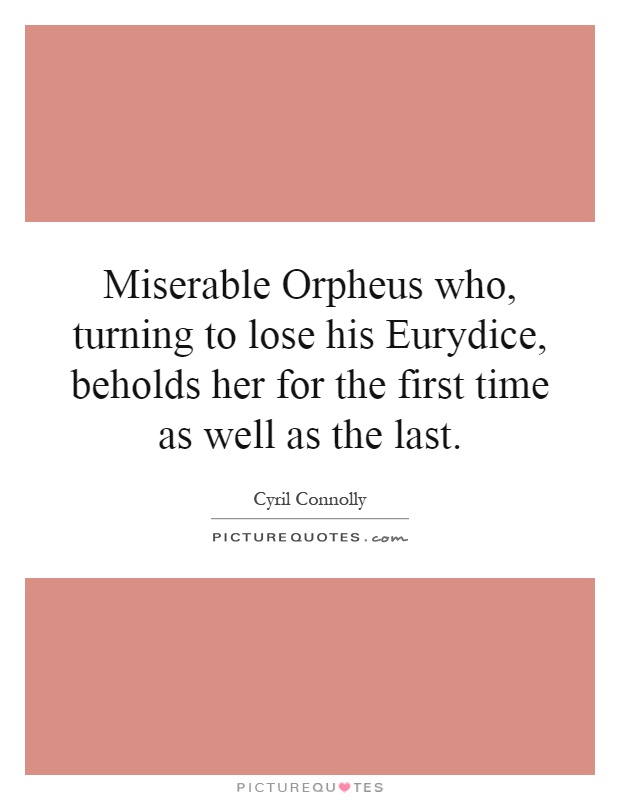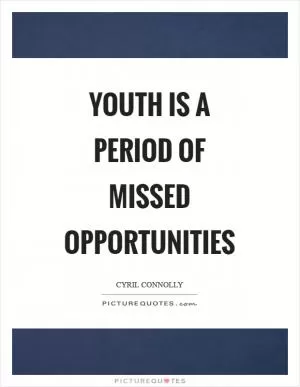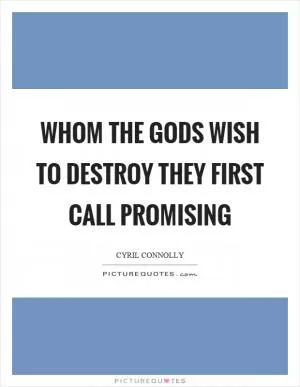Miserable Orpheus who, turning to lose his Eurydice, beholds her for the first time as well as the last

Miserable Orpheus who, turning to lose his Eurydice, beholds her for the first time as well as the last
The myth of Orpheus and Eurydice has been a source of inspiration for countless artists and writers throughout history. The tragic tale of Orpheus, the gifted musician who descends into the underworld to rescue his beloved Eurydice, only to lose her forever at the last moment, has captivated audiences for centuries. In the context of Cyril Connolly, a prominent literary critic and writer of the mid-20th century, the theme of loss and longing in the story of Orpheus and Eurydice takes on a new significance.Connolly was known for his introspective and often melancholic writing, exploring themes of love, loss, and the passage of time. In the myth of Orpheus and Eurydice, Connolly would have found a powerful metaphor for the fleeting nature of happiness and the inevitability of loss. The moment when Orpheus turns to look back at Eurydice, against the warning of the gods, captures the essence of human folly and the tragic consequences of our own actions.
For Connolly, the image of "Miserable Orpheus who, turning to lose his Eurydice, beholds her for the first time as well as the last" would have resonated deeply. The idea of seeing something precious for the first and last time simultaneously speaks to the bittersweet nature of memory and the fleeting beauty of life. Connolly's own struggles with love and loss, as well as his introspective and often self-critical writing style, would have found a kindred spirit in the doomed love story of Orpheus and Eurydice.












 Friendship Quotes
Friendship Quotes Love Quotes
Love Quotes Life Quotes
Life Quotes Funny Quotes
Funny Quotes Motivational Quotes
Motivational Quotes Inspirational Quotes
Inspirational Quotes